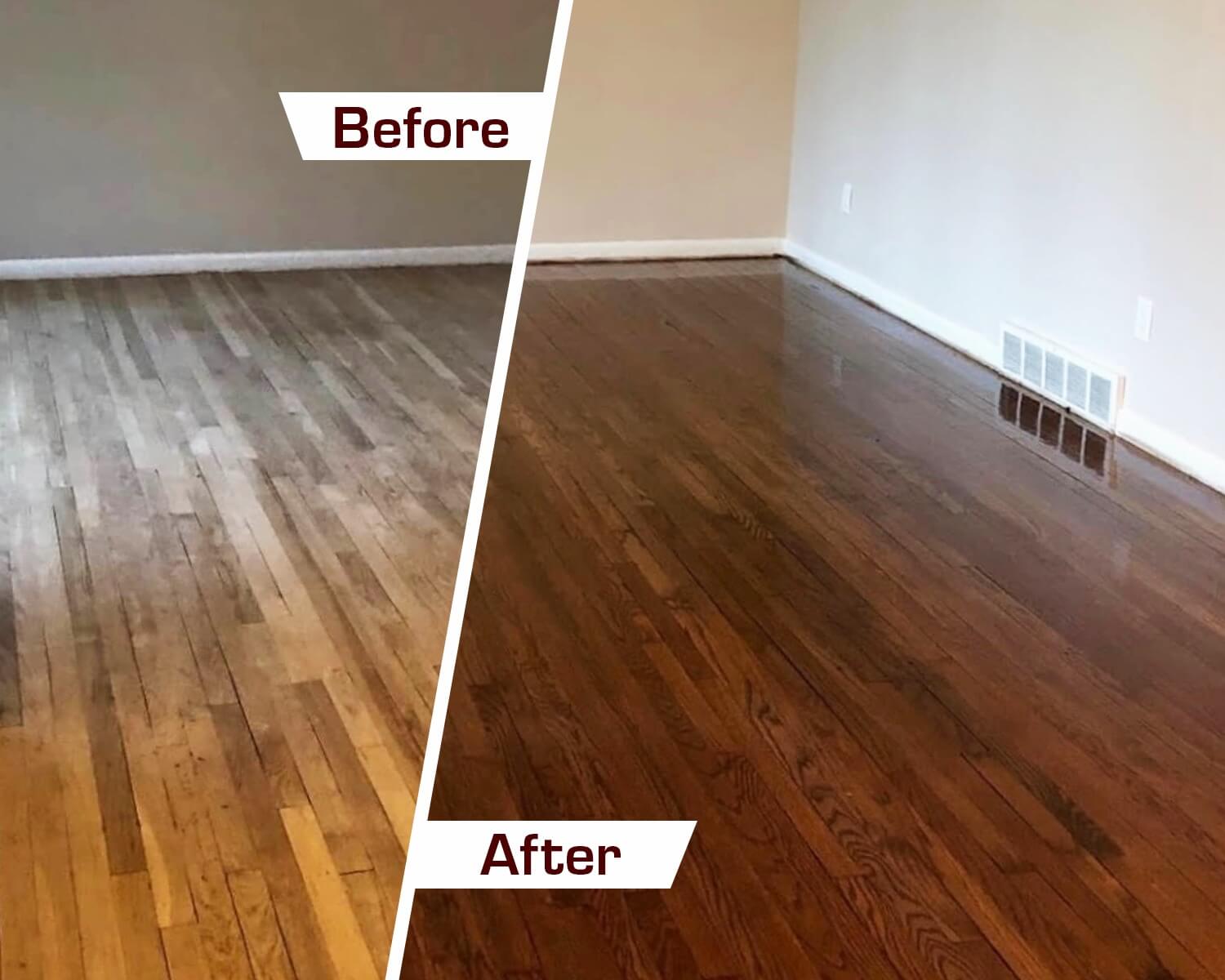Have you inherited a beautiful hardwood floor that’s seen better days? Or perhaps you’re a new homeowner discovering the joys – and challenges – of maintaining these timeless surfaces? You’ve likely heard of Murphy’s Oil Soap, a household name known for its cleaning versatility. But is it truly the best choice for your precious hardwood floors? Let’s delve into the world of wood floor cleaning, uncovering the truth about Murphy’s Oil Soap and finding out if it lives up to the hype.

Image: www.fabulousfloorsdenver.com
Hardwood floors offer a timeless elegance and warmth that can instantly transform any room. They’re also incredibly durable, capable of lasting generations with proper care. But just like any precious possession, they require the right products and techniques to keep their shine and longevity. This article will navigate the often-confusing world of hardwood floor cleaners, taking a close look at the beloved Murphy’s Oil Soap and exploring its suitability for this specific task.
Understanding the Allure of Murphy’s Oil Soap
Murphy’s Oil Soap has been a staple in homes for over a century, earning its reputation for its ability to tackle a wide range of cleaning needs. Its primary ingredient is a blend of vegetable oils, making it a natural, biodegradable alternative compared to harsh chemical cleaners. This natural composition has led many to assume it’s safe and effective for everything, including hardwood floors.
While Murphy’s Oil Soap can be a valuable tool for general cleaning, it’s important to understand its limitations, particularly when it comes to hardwood floors. The key lies in its oil-based nature, which can present both benefits and drawbacks. The oil component helps to loosen dirt and grime, making it effective for cleaning surfaces like countertops and bathtubs. However, this same oily residue can leave a film on hardwood floors, resulting in a dull, hazy appearance.
Murphy’s Oil Soap and Hardwood Floors: Examining the Pros and Cons
Let’s dive into the specific implications of using Murphy’s Oil Soap on hardwood floors:
Pros:
- Natural ingredients: Its vegetable oil base provides a gentler cleaning approach than harsh chemicals, making it a good choice for those concerned about environmental impact and household sensitivities.
- Cost-effective: Murphy’s Oil Soap is generally affordable, making it a budget-friendly option for cleaning your floors.
- Multi-purpose: It can be used for a variety of cleaning tasks around the home, reducing the need for multiple specialized products.

Image: mromavolley.com
Cons:
- Residual oil: The oil content can leave a film on hardwood floors, resulting in a dull and hazy finish, especially on unfinished or unsealed floors. The film can also attract dust and grime, leading to more frequent cleaning.
- Not ideal for all finishes: While it might work on some finished floors, it’s generally not recommended for sealed floors or floors with a polyurethane coating. These types of finishes are designed to repel moisture and oil, and using Murphy’s Oil Soap can actually strip away the protective layer, leaving the wood vulnerable to damage.
- Possible damage: Applying Murphy’s Oil Soap to unfinished or unsealed floors can result in the wood absorbing the oil, leading to discoloration and potential warping.
Alternative Cleaning Solutions for Hardwood Floors
Now that we’ve explored the pros and cons of Murphy’s Oil Soap for hardwood floors, let’s look at alternative cleaning methods that are better suited for these delicate surfaces:
- Wood floor cleaner: Specifically formulated cleaners are designed to remove dirt and grime while leaving a protective finish. They usually have a pH-neutral formula that won’t harm your floors.
- Vinegar and water solution: A mix of equal parts white vinegar and water provides a natural, effective cleaning solution. The vinegar’s acidity breaks down dirt and grime while its mildness avoids damaging the wood.
- Soap and water: A mild dish soap diluted in warm water can also be an effective cleaning solution, especially for lightly soiled floors. Rinse thoroughly to remove any soap residue.
Key Factors to Consider Before Cleaning
Before you start cleaning your hardwood floors, there are several important factors to consider:
- Floor finish: Identifying the type of finish on your floor is crucial. Consider using a manufacturer’s guide or consulting a flooring expert to determine the appropriate cleaning method.
- Amount of dirt: Use a gentle cleaning approach for lightly soiled floors and a stronger solution for heavily soiled ones.
- Floor age: Older floors may require more gentle cleaning to avoid damaging the wood.
Maintenance Tips for Keeping Your Hardwood Floors Beautiful
Proper maintenance goes a long way in preserving the beauty and longevity of your hardwood floors. Here are some helpful tips:
- Regular sweeping or vacuuming: This removes surface dirt and dust, preventing scratches and build-up.
- Avoid harsh chemicals: Stick to pH-neutral cleaners formulated for hardwood floors.
- Use protective mats: Place mats at entryways to trap dirt and grit before they reach your floors.
Is Murphy’S Soap Good For Hardwood Floors
Conclusion: Finding the Right Cleaning Solution
When it comes to hardwood floors, using the right cleaning solution is essential for maintaining their beauty and durability. While Murphy’s Oil Soap can be an effective cleaning agent for other surfaces, its oily nature can be detrimental to hardwood floors, potentially dulling the finish and even damaging the wood. By choosing a specialized wood floor cleaner or a gentle alternative like vinegar and water, you can keep your floors sparkling clean without compromising their integrity.
Remember, a little preventative care goes a long way. With proper cleaning and maintenance, your hardwood floors will continue to radiate elegance and warmth for years to come. So, be mindful of the products you use, and enjoy the timeless beauty of your hardwood floors!

:max_bytes(150000):strip_icc()/OrangeGloEverydayHardwoodFloorCleaner22oz-5a95a4dd04d1cf0037cbd59c.jpeg?w=740&resize=740,414&ssl=1)




